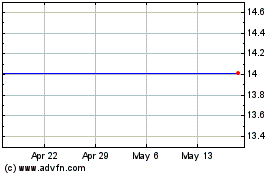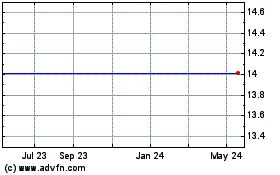New Evidence for Whole Genome Linkage in Bipolar Disorder
March 31 2004 - 9:30AM
PR Newswire (US)
New Evidence for Whole Genome Linkage in Bipolar Disorder
Affymetrix GeneChip(R) Mapping 10K Array Allows for Discovery of
Two New Genetic Loci Previously Undetected by Microsatellite
Analysis SANTA CLARA, Calif., March 31 /PRNewswire-FirstCall/ --
Affymetrix, Inc., announced today that a team of researchers from
Upstate Medical University, the Department of Veterans Affairs
(VA), the University of Coimbra and the Broad and Whitehead
Institutes discovered new evidence for whole genome linkage in
bipolar disorder. The study on this complex psychiatric disease is
one of the first published using the GeneChip(R) Mapping 10K Array,
a higher resolution, easier and faster alternative to
microsatellites for linkage and linkage disequilibrium analyses.
(For an interactive version of this press release with additional
information, please go to
http://www.corporate-ir.net/ireye/ir_site.zhtml?ticker=AFFX&script=400
and click on the release title) The study, which has been accepted
for publication in the May 2004 issue of the American Journal of
Human Genetics, identified two new loci on chromosomes 6 and 11
that show evidence for linkage in this complex disorder. Both loci
contain genes that appear to play a major role in brain function,
according to the paper. The chromosome 6 finding replicated
previous findings by the National Institutes of Health (NIH), an
encouraging step in a disease which often yields conflicting
findings and un-reproducible findings from study to study. "This
long-term genetic population study has the potential of helping us
understand the importance of a variety of genetic factors on
bipolar disorder and other psychotic disorders," explained Carlos
and Michele Pato from Upstate Medical University and the
Washington, D.C. Veterans Affairs Medical Center. "The ability to
achieve genome-wide significance for linkage in this population was
clearly enhanced by the far more complete linkage information
possible with the 10K. We are looking forward to important
collaborative efforts with others in the field to further explore
these findings." The study was performed in two parts. In the first
part, the research team analyzed 12 families with both
microsatellites and the Mapping 10K Array. The resultsshowed a high
degree of corresponding linkage findings for most chromosomes using
both approaches. More importantly, however, analysis with the
Mapping 10K Array showed evidence for significant genome-wide
linkage on two additional chromosomes in locations where the marker
density and information content of microsatellite-based assays were
very low. In the second part of the study, the analysis was
expanded to include 25 families, all of which were assayed with the
Mapping 10K. These results demonstrated even greater evidence for
genome-wide significance, with linkage mapping to chromosomal
region 6q22. This discovery, which replicated findings that took
NIH researchers in bipolar disorder several years using hundreds of
families, was arrived atin less than 5 months at nearly one tenth
the cost of the previous microsatellite genome scan. "Using the 10K
clearly revealed gaps in the coverage and the information content
of the traditional microsatellite-based assay," said Frank
Middleton of Upstate Medical University. "It was exactly in those
gaps where the new significant signals were found. We're very
encouraged by the results, by the close correlation with the NIH
findings, and by how fast and accurately we were able to do the
study using the 10K Array." In planned follow up studies, the
research team will greatly expand the number of affected
individuals studied, genotyping all families within the geographic
area with histories of bipolar disorder using a similar whole
genome approach. In addition, the investigators will greatly
increase the number of SNPs assayed in follow up analysis of the
6q22 linkage peaks and pool their results with data from the NIH
showing a similar result. The study was funded by the National
Institute of Mental Health (NIMH), the VA, the National Alliance
for Research on Schizophrenia and Depression (NARSAD), and the
Fundacao para a Ciencia e a Tecnologia (FCT) in Portugal. The
Mapping 10K Array brings whole genome SNP analysis to the benchtop
by combining an innovative, scalable assay with a proven
information platform. All 10,000 genotypes are generated in a
single experiment, allowing more rapid discovery of genomic regions
linked to disease. The platform allows for automated genotype
calling andproduces the highest physical and genetic resolution
available for family linkage studies in inherited disease.
Additional reported applications of this technology include cancer
genetics (chromosomal amplification, deletion and loss of
heterozygosity)and population genetics. About Affymetrix:
Affymetrix is a pioneer in creating breakthrough tools that are
driving the genomic revolution. By applying the principles of
semiconductor technology to the life sciences, Affymetrix develops
and commercializes systems that enable scientists to improve
quality of life. The Company's customers include pharmaceutical,
biotechnology, agrichemical, diagnostics and consumer products
companies as well as academic, government and other non-profit
research institutes. Affymetrix offers an expanding portfolio of
integrated products and services, including its integrated GeneChip
brand platform, to address growing markets focused on understanding
the relationship between genes and human health. Additional
information on Affymetrix can be found at
http://www.affymetrix.com/. All statements in this press release
that are not historical are "forward-looking statements" within the
meaning of Section 21E of the Securities Exchange Act as amended,
including statements regarding Affymetrix' "expectations,"
"beliefs," "hopes," "intentions," "strategies" or the like. Such
statements are subject to risks and uncertainties that could cause
actual results to differ materially for Affymetrix from those
projected, including, but not limited to risks of the Company's
ability to achieve and sustain higher levels of revenue, higher
gross margins, reduced operating expenses, uncertainties relating
to technological approaches, manufacturing, product development,
market acceptance (including uncertainties relating to product
development and market acceptance of the GeneChip(R) Mapping 10K
Array), personnel retention, uncertainties related to cost and
pricing of Affymetrix products, dependence on collaborative
partners, uncertainties relating to sole source suppliers,
uncertainties relating to FDA and other regulatory approvals,
competition, risks relating to intellectual property of others and
the uncertainties of patent protection and litigation. These and
other riskfactors are discussed in Affymetrix' Form 10-K for the
year ended December 31, 2003 and other SEC reports, including its
Quarterly Reports on Form 10-Q for subsequent quarterly periods.
Affymetrix expressly disclaims any obligation or undertaking to
release publicly any updates or revisions to any forward- looking
statements contained herein to reflect any change in Affymetrix'
expectations with regard thereto or any change in events,
conditions, or circumstances on which any such statements are
based. NOTE: Affymetrix, the Affymetrix logo, and GeneChip are
registered trademarks owned or used by Affymetrix, Inc. DATASOURCE:
Affymetrix, Inc. CONTACT: media, Wes Conard, Associate Director,
Public Relations, +1-408-731-5791, or ; or investors, Doug Farrell,
Vice President, Investor Relations, +1-408-731-5285, or , both of
Affymetrix, Inc. Web site: http://www.affymetrix.com/
Copyright
Affymetrix (NASDAQ:AFFX)
Historical Stock Chart
From Jun 2024 to Jul 2024

Affymetrix (NASDAQ:AFFX)
Historical Stock Chart
From Jul 2023 to Jul 2024
